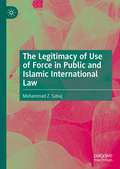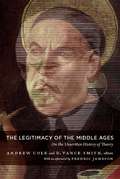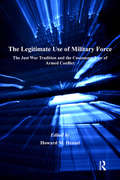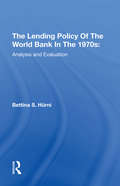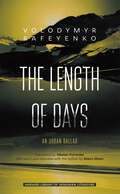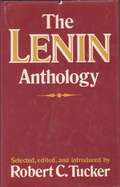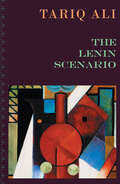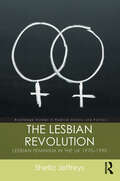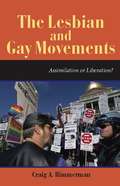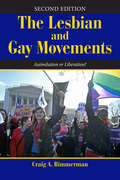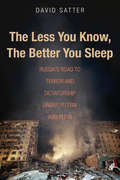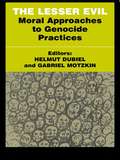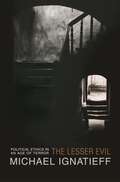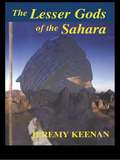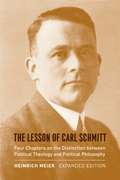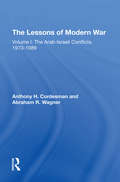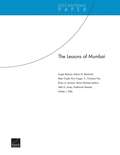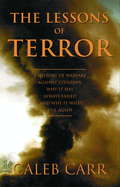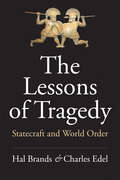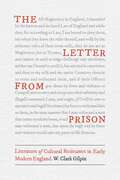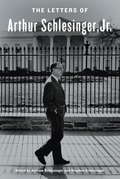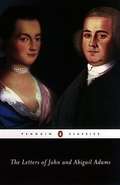- Table View
- List View
The Legitimacy of Use of Force in Public and Islamic International Law
by Mohammad Z. SabujThis book investigates the legitimacy deficits of two potentially conflicting legal systems, namely Public and Islamic international law. It discusses the challenges that Public international law is being presented within the context of its relationship with Islamic international law. It explores how best to overcome these challenges through a comparative examination of state practices on the use of force. It highlights the legal-political legacies that evolved surrounding the claims of the legitimacy of use of force by armed non-state actors, states, and regional organizations. This book offers a critical analysis of these legacies in line with the Islamic Shari‘a law, United Nations Charter, state practices, and customs. It concludes that the legitimacy question has reached a vantage point where it cannot be answered either by Islamic or Public international law as a mutually exclusive legal system. Instead, Public international law must take a coherent approach within the existing legal framework.
The Legitimacy of the Middle Ages: On the Unwritten History of Theory
by Andrew Cole D. Vance SmithThis collection of essays argues that any valid theory of the modern should--indeed must--reckon with the medieval. Offering a much-needed correction to theorists such as Hans Blumenberg, who in his Legitimacy of the Modern Age describes the "modern age" as a complete departure from the Middle Ages, these essays forcefully show that thinkers from Adorno to Žižek have repeatedly drawn from medieval sources to theorize modernity. To forget the medieval, or to discount its continued effect on contemporary thought, is to neglect the responsibilities of periodization. In The Legitimacy of the Middle Ages, modernists and medievalists, as well as scholars specializing in eighteenth-, nineteenth-, and twentieth-century comparative literature, offer a new history of theory and philosophy through essays on secularization and periodization, Marx's (medieval) theory of commodity fetishism, Heidegger's scholasticism, and Adorno's nominalist aesthetics. One essay illustrates the workings of medieval mysticism in the writing of Freud's most famous patient, Daniel Paul Schreber, author of Memoirs of My Nervous Illness (1903). Another looks at Michael Hardt and Antonio Negri's Empire, a theoretical synthesis whose conscientious medievalism was the subject of much polemic in the post-9/11 era, a time in which premodernity itself was perceived as a threat to western values. The collection concludes with an afterword by Fredric Jameson, a theorist of postmodernism who has engaged with the medieval throughout his career. Contributors: Charles D. Blanton, Andrew Cole, Kathleen Davis, Michael Hardt, Bruce Holsinger, Fredric Jameson, Ethan Knapp, Erin Labbie, Jed Rasula, D. Vance Smith, Michael Uebel
The Legitimate Use of Military Force: The Just War Tradition and the Customary Law of Armed Conflict (Justice, International Law and Global Security)
by Howard M. HenselThroughout human history, scholars, statesmen and military leaders have attempted to define what constitutes the legitimate use of armed force by one community against another. Moreover, if force is to be used, what normative guidelines should govern the conduct of warfare? Based upon the assumption that armed conflict is a human enterprise and therefore subject to human limitations, the Western 'just war tradition' represents an attempt to provide these guidelines. Following on from the success of Hensel's earlier publication, The Law of Armed Conflict, this volume brings together an internationally recognized team of scholars to explore the philosophical and societal foundations of just war tradition. It relates the principles of jus ad bellum to contemporary issues confronting the global community and explores the relationship between the principles of jus in bello and the various principles embodied in the customary law of armed conflict. Applying an interdisciplinary approach to analyzing and assessing the links between just war and the norms of behaviour, the book provides a valuable contribution to international law, international relations and national security studies.
The Lending Policy Of The World Bank In The 1970s: Analysis And Evaluation
by Bettina S. HurniThis pilot study - the first to analyze the World Bank’s lending policy in the Second United Nations Development Decade - concentrates on the Bank’s shift in emphasis from traditional infrastructure projects to “new style†projects, especially in the area of rural development, and on the resulting changes in lending criteria in the 1970s. Basing her conclusions on two years of independent research and access to confidential materials, Dr. Hurni evaluates the World Bank’s work; gives a good overall view of current development problems - including implementation of the “growth with equity†strategy - and their possible solutions; shows the effects of the new development goals in borrower and creditor countries, as well as on the institutional decision-making process; and offers recommendations for improvement of the Bank’s evaluation methodology and operational structures. She presents a clear picture of the positive and negative aspects of the World Bank as a multilateral investment model and shows its bridge-building function in the great North-South controversy.
The Length of Days: An Urban Ballad (Harvard Library of Ukrainian Literature #6)
by Volodymyr RafeyenkoThe Length of Days features a wild cast of characters—Lithuanian, Russian, and Ukrainian—and cameo appearances by Rosa Luxemburg, Amy Winehouse, and others. Embedded narratives attributed to one character, an alcoholic chemist-turned-massage-therapist, broaden the reader’s view of the funny, ironic, or tragic lives of people who remained in the ill-fated Donbas after Russia’s initial aggression in 2014. Unexpected allies emerge to try to stop the war, as characters criticize Ukraine’s government at the time, its self-interest, and failures to support its citizens in the east.With elements of magical realism, the work combines poetry and a wicked sense of humor with depth of political analysis, philosophy, and moral interrogation. Witty references to popular culture—Ukrainian and European—underline the international and transnational aspects of Ukrainian literature. The novel ends on a hopeful note even though by then the main characters have already died twice: they return with greater power each time. As the author’s last novel written originally in the Russian language, The Length of Days is a deeply Ukrainian work, set mostly in the composite Donbas city of Z—an uncanny foretelling of what this letter has come to symbolize since February 24, 2022, when Russia launched a full-scale invasion of Ukraine.
The Lenin Anthology
by Robert TuckerHere, in a compact yet comprehensive volume, are the essentials of Lenin's writings, each of them introduced with a brief interpretive commentary. Patterned after Professor Tucker's highly successful anthology The Marx-Engels Reader, this book includes those words necessary for an introduction to Lenin's revolutionary thought. Selections, where possible, are presented in their fullest form, and 'The State and Revolution' and 'Left-Wing Communism' in their entirety.
The Lenin Scenario
by Tariq AliThe revolutionary world leader&’s extraordinary life, published for the centenary of Lenin&’s deathCommissioned by Oliver Stone in 2015 to commemorate the Russian Revolution, Tariq Ali&’s captivating screenplay of the life and times of Vladimir Lenin puts flesh on the bones of the historical record and gets its pulse racing. From the author of The Dilemmas of Lenin, the drama captures the enigma of its central character. Ali shows Lenin in his rush from Switzerland to Petrograd by train to grasp his moment in history and the force of his personality on the tumult he found there. He made a revolution and remade a nation. Interwoven with the politics is an exploration of Lenin&’s personal life, especially his love for Inessa Armand.In the introduction, Ali argues that, despite the difficulties, a serious cinematic assessment of Lenin is still needed. Unfortunately, two very different attempts to film one failed. This first draft provides the basis for something on a grander scale at some stage in the future.Praise for The Dilemmas of Lenin &‘Aims to rescue Lenin from both liberal caricature and Soviet hag- iography by recovering the realism and dynamism of his political thought&’ David Sessions, Nation&‘An incredibly powerful, panoramic, and insightful study of the central revolutionary figure of the twentieth century&’ Paul LeBlanc, author of Lenin and the Revolutionary Party
The Lesbian Revolution: Lesbian Feminism in the UK 1970-1990 (Routledge Studies in Radical History and Politics)
by Sheila JeffreysThe Lesbian Revolution argues that lesbian feminists were a vital force in the Women’s Liberation Movement (WLM). They did not just play a fundamental role in the important changes wrought by second wave feminism, but created a powerful revolution in lesbian theory, culture and practice. Yet this lesbian revolution is undocumented. The book shows that lesbian feminists were founders of feminist institutions such as resources for women survivors of men’s violence, including refuges and rape crisis centres, and that they were central to campaigns against this violence. They created a feminist squatting movement, theatre groups, bands, art and poetry and conducted campaigns for lesbian rights. They also created a profound and challenging analysis of sexuality which has disappeared from the historical record. They analysed heterosexuality as a political institution, arguing that lesbianism was a political choice for feminists and, indeed, a form of resistance in itself. Using interviews with prominent lesbian feminists from the time of the WLM, and informed by the author's personal experience, this book aims to challenge the way the work and ideas of lesbian feminists have been eclipsed and to document the lesbian revolution. The book will be of key interest to scholars and students of women’s history, the history of feminism, the politics of sexuality, women’s studies, gender studies, lesbian and gay studies, queer studies and cultural studies, as well as to the lay reader interested in the WLM and feminism more generally.
The Lesbian and Gay Movements
by Craig A. RimmermanAn exploration of whether to embrace assimilationist or liberationist strategies in lesbian and gay movements in both contemporary and historical contexts, describing the sources of these conflicts, to what extent the conflicts have been resolved, and how they might be resolved in future.
The Lesbian and Gay Movements
by Craig A. RimmermanThroughout their relatively short history, lesbian and gay movements in the United States have endured searing conflicts over whether to embrace assimilationist or liberationist strategies. The Lesbian and Gay Movements explores this dilemma in both contemporary and historical contexts. Rimmerman tackles the challenging issue of what constitutes movement "effectiveness" and how "effective" the assimilationist and liberationist strategies have been in three contentious policy arenas: the military ban, same-sex marriage, and AIDS. Since the first edition in 2007, the landscape of lesbian and gay movements and rights has seen enormous changes. The thoroughly revised second edition includes updated discussion of LGBT movements' undertakings in, as well the Obama administration’s response to, HIV/AIDS policy, the fight to legalize same-sex marriage and overturn the Defense of Marriage Act, and the repeal of "Don’t Ask, Don’t Tell. "
The Lesbian and Gay Movements: Assimilation or Liberation?
by Craig A RimmermanThroughout their relatively short history, the lesbian and gay movements in the United States have endured searing conflicts over whether to embrace assimilationist or liberationist strategies. This new book explores this dilemma in both contemporary and historical contexts, describing the sources of these conflicts, to what extent the conflicts have been resolved, and how they might be resolved in future.<P> The text also tackles the challenging issue of what constitutes movement "effectiveness" and how "effective" the assimilationist and liberationist strategies have been in three contentious policy arenas: the military ban, same-sex marriage, and AIDS. Considerable attention is devoted to how policy elites--most notably Presidents Reagan, Bush, and Clinton; Congress; and the Supreme Court--have responded to the movements' grievances. The book examines the George W. Bush presidency with an eye to assessing how political opportunities have informed the broader lesbian and gay movements' strategies, and also details the response of the Christian Right to the movements' various assimilationist and liberationist strategies.
The Lesbian and Gay Movements: Assimilation or Liberation? 2nd Ed.
by Craig A RimmermanThroughout their relatively short history, lesbian and gay movements in the United States have endured searing conflicts over whether to embrace assimilationist or liberationist strategies. The Lesbian and Gay Movements explores this dilemma in both contemporary and historical contexts, describing the sources of these conflicts, to what extent the conflicts have been resolved, and how they might be resolved in future. Rimmerman also tackles the challenging issue of what constitutes movement "effectiveness" and how "effective" the assimilationist and liberationist strategies have been in three contentious policy arenas: the military ban, same-sex marriage, and AIDS. Considerable attention is devoted to how policy elites-presidents, federal and state legislatures, courts-have responded to the movements' grievances.<P> Since the publication of the first edition in 2007, there have been enormous changes in the landscape of lesbian and gay movements and rights. The thoroughly revised second edition includes updated discussion of LGBT movements' undertakings in, as well the Obama administration's response to, AIDS/HIV policy, the fight to legalize same-sex marriage and overturn the Defense of Marriage Act, and the repeal of "Don't Ask, Don't Tell."
The Less You Know, The Better You Sleep: Russia's Road to Terror and Dictatorship under Yeltsin and Putin
by David SatterIn December 2013, David Satter became the first American journalist to be expelled from Russia since the Cold War. The Moscow Times said it was not surprising he was expelled, "it was surprising it took so long. " Satter is known in Russia for having written that the apartment bombings in 1999, which were blamed on Chechens and brought Putin to power, were actually carried out by the Russian FSB security police. In this book, Satter tells the story of the apartment bombings and how Boris Yeltsin presided over the criminalization of Russia, why Vladimir Putin was chosen as his sucessor, and how Putin has suppressed all opposition while retaining the appreance of a pluralist state. As the threat represented by Russia becomes increasingly clear, Satter's description of where Russia is and how it got there will be of vital interest to anyone concerned about the dangers facing the world today.
The Lesser Evil: Moral Approaches to Genocide Practices (Totalitarianism Movements and Political Religions)
by Helmut Dubiel Gabriel MotzkinThis book comprises 14 essays by scholars who disagree about the methods and purposes of comparing Nazism and Communism. The central idea is that if these two different memories of evil were to develop in isolation, their competition for significance would distort the real evils both movements propagated. Whilst many reject this comparison because they feel it could relativize the evil of one of these movements, the claim that a political movement is uniquely evil can only be made by comparing it to another movement.How do these issues affect postwar interrelations between memory and history? Are there tensions between the ways postwar societies remember these atrocities, and the ways in which intellectuals and scholars reconstruct what happened? Nazism and Communism have been constantly compared since the 1920s. A sense of the ways in which these comparisons have been used and abused by both Right and Left belongs to our common history.These twentieth century evils invite comparison, if only because of their traumatic effects. We have an obligation to understand what happened, and we also have an obligation to understand how we have dealt with it.
The Lesser Evil: Political Ethics in an Age of Terror
by Michael IgnatieffMust we fight terrorism with terror, match assassination with assassination, and torture with torture? Must we sacrifice civil liberty to protect public safety? In the age of terrorism, the temptations of ruthlessness can be overwhelming. But we are pulled in the other direction too by the anxiety that a violent response to violence makes us morally indistinguishable from our enemies. There is perhaps no greater political challenge today than trying to win the war against terror without losing our democratic souls. Michael Ignatieff confronts this challenge head-on, with the combination of hard-headed idealism, historical sensitivity, and political judgment that has made him one of the most influential voices in international affairs today. Ignatieff argues that we must not shrink from the use of violence--that far from undermining liberal democracy, force can be necessary for its survival. But its use must be measured, not a program of torture and revenge. And we must not fool ourselves that whatever we do in the name of freedom and democracy is good. We may need to kill to fight the greater evil of terrorism, but we must never pretend that doing so is anything better than a lesser evil. In making this case, Ignatieff traces the modern history of terrorism and counter-terrorism, from the nihilists of Czarist Russia and the militias of Weimar Germany to the IRA and the unprecedented menace of Al Qaeda, with its suicidal agents bent on mass destruction. He shows how the most potent response to terror has been force, decisive and direct, but--just as important--restrained. The public scrutiny and political ethics that motivate restraint also give democracy its strongest weapon: the moral power to endure when the furies of vengeance and hatred are spent. The book is based on the Gifford Lectures delivered at the University of Edinburgh in 2003.
The Lesser Gods of the Sahara: Social Change and Indigenous Rights
by Jeremy KeenanThe northern Tuareg (the Tuareg of Algeria) - the nomadic, blue-veiled warlords of the Central Sahara - were finally defeated militarily by the French at the battle of Tit in 1902. Some sixty years later, following Algerian independence in 1962, they were visited by a young English anthropologist, Jeremy Keenan. During the course of seven years, Keenan studied their way of life, the social, political and economic changes that had taken place in their society since traditional, pre-colonial times, and their resistance and adaptation to the modernising forces of the new Algerian state. In 1999, following eight years during which Algeria's Tuareg were effectively isolated from the outside world as a result of Algeria's political crisis, Keenan returned to visit them once again. Following a further four years of study, he has written a series of eight essays that capture the key changes that have occurred amongst Algeria's Tuareg in the forty years since independence.
The Lesson of Carl Schmitt: Four Chapters on the Distinction between Political Theology and Political Philosophy
by Heinrich MeierHeinrich Meier’s work on Carl Schmitt has dramatically reoriented the international debate about Schmitt and his significance for twentieth-century political thought. In The Lesson of Carl Schmitt, Meier identifies the core of Schmitt’s thought as political theology—that is, political theorizing that claims to have its ultimate ground in the revelation of a mysterious or suprarational God. This radical, but half-hidden, theological foundation underlies the whole of Schmitt’s often difficult and complex oeuvre, rich in historical turns and political convolutions, intentional deceptions and unintentional obfuscations. In four chapters on morality, politics, revelation, and history, Meier clarifies the difference between political philosophy and Schmitt’s political theology and relates the religious dimension of his thought to his support for National Socialism and his continuing anti-Semitism. New to this edition are two essays that address the recently published correspondences of Schmitt—particularly with Hans Blumberg—and the light it sheds on his conception of political theology.
The Lessons Of Modern War: Volume I: The Arab-israeli Conflicts, 1973-1989
by Anthony H Cordesman Abraham WagnerThis volume, the first in a series of three, covers the lessons of the 1973-1989 Arab-Israeli arms race and of the conflicts of 1973 and 1982. It draws on interviews with Arab and Israeli sources and reveals that if truth is the first casualty of war, then history is the first casualty of peace.
The Lessons of Mumbai
by Peter Chalk Angel Rabasa Kim Cragin C. Christine Fair Robert D. BlackwillThis study of the Mumbai, India, terrorist attack of November 2008 identifies the operational and tactical capabilities displayed by the terrorists and evaluates the response of the Indian security forces, with the goal of helping counterterrorism authorities in India and elsewhere to prepare for or counter future terrorist attacks on urban centers.
The Lessons of Terror: A History of Warfare Against Civilians: Why It Has Always Failed and Why It Will Fail Again
by Caleb CarrIn The Lessons of Terror, novelist and military historian Caleb Carr examines terrorism throughout history and the roots of our present crisis and reaches a provocative set of conclusions: the practice of targeting enemy civilians is as old as warfare itself; it has always failed as a military and political tactic; and despite the dramatic increases in its scope and range of weapons, it will continue to fail in the future.International terrorism—the victimization of unarmed civilians in an attempt to affect their support for the government that leads them—is a phrase with which Americans have become all too familiar recently. Yet while at first glance terrorism seems a relatively modern phenomenon, Carr illustrates that it has been a constant of military history. In ancient times, warring armies raped and slaughtered civilians and gratuitously destroyed property, homes, and cities; in the Middle Ages, evangelical Muslims and Christian crusaders spread their faiths by the sword; and in the early modern era, such celebrated kings as Louis XIV revealed a taste for victimizing noncombatants for political purposes.It was during the Civil War that Americans themselves first engaged in “total war,” the most egregious of the many euphemisms for the tactics of terror. Under the leadership of such generals as Stonewall Jackson, the forces of the South tried to systematize this horrifying practice; but it fell to a Union general, William Tecumseh Sherman, to achieve that dubious goal. Carr recounts Sherman’s declaration of war on every man, woman, and child in the South—a policy that he himself knew was badly flawed, had nothing to do with his military successes (indeed, it hampered them), and brought long-term unrest to the American South by giving birth to the Ku Klux Klan.Carr’s exploration of terror reveals its consistently self-defeating nature. Far from prompting submission, Carr argues, terrorism stiffens enemy resolve: for this reason above all, terrorism has never achieved—nor will it ever achieve—long-term success, however physically destructive and psychologically debilitating it may become. With commanding authority and the storyteller’s gift for which he is renowned, Caleb Carr provides a critical historical context for understanding terrorist acts today, arguing that terrorism will be eradicated only when it is perceived as a tactic that brings nothing save defeat to its agents.
The Lessons of Tragedy: Statecraft and World Order
by Hal Brands Charles EdelA “brilliant” examination of American complacency and how it puts the nation’s—and the world’s—security at risk (The Wall Street Journal).The ancient Greeks hard-wired a tragic sensibility into their culture. By looking disaster squarely in the face, by understanding just how badly things could spiral out of control, they sought to create a communal sense of responsibility and courage—to spur citizens and their leaders to take the difficult actions necessary to avert such a fate. Today, after more than seventy years of great-power peace and a quarter-century of unrivaled global leadership, Americans have lost their sense of tragedy. They have forgotten that the descent into violence and war has been all too common throughout human history. This amnesia has become most pronounced just as Americans and the global order they created are coming under graver threat than at any time in decades.In a forceful argument that brims with historical sensibility and policy insights, two distinguished historians argue that a tragic sensibility is necessary if America and its allies are to address the dangers that menace the international order today. Tragedy may be commonplace, Brands and Edel argue, but it is not inevitable—so long as we regain an appreciation of the world’s tragic nature before it is too late.“Literate and lucid—sure to interest to readers of Fukuyama, Huntington, and similar authors as well as students of modern realpolitik.” —Kirkus Reviews
The Letter from Prison: Literature of Cultural Resistance in Early Modern England
by W. Clark GilpinLetters from prison testifying to deeply felt ethical principles have a long history, extending from antiquity to the present day. In the early modern era, the rise of printing houses helped turn these letters into a powerful form of political and religious resistance. W. Clark Gilpin’s fascinating book examines how letter writers in England—ranging from archbishops to Quaker women—consolidated the prison letter as a literary form.Drawing from a large collection of printed prison letters written from the reign of Henry VIII to the closing decades of the seventeenth century, Gilpin explores the genre's many facets within evolving contexts of reformation and revolution. The writers of these letters portrayed the prisoner of conscience as a distinct persona and the prison as a place of redemptive suffering where bearing witness had the power to change society.The Letter from Prison features a diverse cast of characters and a literary genre that combines drama and inspiration. It is sure to appeal to those interested in early modern England, prison literature, and cultural forms of resistance.
The Letters of Arthur Schlesinger, Jr.
by Arthur Schlesinger Stephen C. Schlesinger Andrew SchlesingerThis extraordinary collection gathers the never-before-seen correspondence of a true American original--the acclaimed historian and lion of the liberal establishment, Arthur Schlesinger, Jr. An advisor to presidents, two-time Pulitzer Prize winner, and tireless champion of progressive government, Arthur Schlesinger, Jr., was also an inveterate letter writer. Indeed, the term "man of letters" could easily have been coined for Schlesinger, a faithful and prolific correspondent whose wide range of associates included powerful public officials, notable literary figures, prominent journalists, Hollywood celebrities, and distinguished fellow scholars. The Letters of Arthur Schlesinger, Jr. reveals the late historian's unvarnished views on the great issues and personalities of his time, from the dawn of the Cold War to the aftermath of September 11. Here is Schlesinger's correspondence with such icons of American statecraft as Harry Truman, Adlai Stevenson, Hubert Humphrey, Henry Kissinger, Bill Clinton, and, of course, John and Robert Kennedy (including a detailed critique of JFK's manuscript for Profiles in Courage). There are letters to friends and confidants such as Eleanor Roosevelt, John Kenneth Galbraith, Gore Vidal, William Styron, and Jacqueline Kennedy (to whom Schlesinger sends his handwritten condolences in the hours after her husband's assassination), and exchanges with such unlikely pen pals as Groucho Marx, Sammy Davis, Jr., and Bianca Jagger. Finally, there are Schlesinger's many thoughtful replies to the inquiries of ordinary citizens, in which he offers his observations on influences, issues of the day, and the craft of writing history. Written with the range and insight that made Schlesinger an indispensable figure, these letters reflect the evolution of his thought--and of American liberalism--from the 1940s to the first decade of the new millennium. Whether he is arguing against the merits of preemptive war, advocating for a more forceful policy on civil rights, or simply explaining his preference in neckwear ("For sloppy eaters bow ties are a godsend"), Schlesinger reveals himself as a formidable debater and consummate wit who reveled in rhetorical combat. To a detractor who accuses him of being a Communist sympathizer, he writes: "If your letter was the product of sincere misunderstanding, the facts I have cited should relieve your mind. If not, I can only commend you to the nearest psychiatrist." Elsewhere, he castigates a future Speaker of the House, John Boehner, for misattributing quotations to Abraham Lincoln. Combining a political strategist's understanding of the present moment with a historian's awareness that the eyes of posterity were always watching him, Arthur Schlesinger, Jr., helped shape the course of an era with these letters. This landmark collection frames the remarkable dynamism of the twentieth-century and ensures that Schlesinger's legacy will continue to influence this one.Advance praise for The Letters of Arthur Schlesinger, Jr. "Arthur Schlesinger's letters are full of personal, political, and historical insights into the tumultuous events and enormous personalities that dominated the mid-twentieth century. Because he viewed them up close but with a historian's perspective, The Letters of Arthur Schlesinger, Jr. helps us all to more fully understand recent history."--President Bill Clinton
The Letters of Franklin K. Lane
by Louise Herrick Wall Anne Wintermute Franklin K. LaneA selection of letters written by Franklin K. Lane.
The Letters of John and Abigail Adams
by John Adams Frank Shuffelton Abigail AdamsThe Letters of John and Abigail Adams provides an insightful record of American life before, during, and after the Revolution; the letters also reveal the intellectually and emotionally fulfilling relationship between John and Abigail that lasted fifty-four years and withstood historical upheavals, long periods apart, and personal tragedies. Covering key moments in American history-the Continental Congress, the drafting of the Declaration of Independence, the Revolutionary War, and John Adams's diplomatic missions to Europe-the letters reveal the concerns of a couple living during a period of explosive change, from smallpox and British warships to raising children, paying taxes, the state of women, and the emerging concepts of American democracy. .
